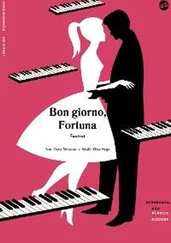Samantha was not my first; there had been a lady of the evening I patronized during a trip to Lisbon some years earlier. But Samantha was the first among the girls who were considered proper matches — the right age, the right class, the right faith — and as she lay there on the daybed, I suddenly had a pang of hatred for her. A pang of hatred for myself followed close behind. The woman had made herself available to me in a manner that risked her reputation. What right did I have to judge her? And yet my contempt was indisputable: “the woman,” as a way of referring to my beloved, my betrothed? Beastly. Perhaps the devil in me was broadening. I went to the window. The park was across the street and I tried to take it all in with one long stare. Was that even possible? I had read an article about that exact question; the author, a respected alienist and psychologist, had suggested that a duration of twenty seconds contributed most to the masonry of recollection, and that any longer study began to take bricks away. I looked for twenty-five seconds, looked away, remembered nothing, wondered if I had proven anything.
The lady in Lisbon had been the first. Someone else had been the second, and another someone else the third. Then came the fourth, a girl here in town, the older sister of a school friend, and that was when my brazenness began to turn back in on itself. That woman, the older sister, had a worldly air; she had spent a year in Lyon, which she called a magical city, though I came to realize that by magical she meant sensual, and by city she meant the garret of her older lover, a married painter who had her strip down and stand in the center of a large bare floor. His paintings were portraits of her that he later surrounded with antique grandeur — palaces, fountains, arches. I had seen one. It was terrible: quite realistic. It was through this woman that I met Samantha.
They had come together to a dinner party at my aunt’s town-house the previous winter. The woman and I were pretending that we only hardly knew each other, and asking the sorts of questions you would ask a person of new acquaintance: Tell me again, have you been to France? That excited her. As part of that ruse, she drew in Samantha, who had been a younger classmate of hers some years before. Samantha later said that she took one look at me and knew I was the man she would marry. I took one look at her and thought little, though when she turned to speak to someone else I do remember remarking to myself that she had the figure of an angel, particularly from the rear. I was by no means immune to that fact, or in general to the effect of a beautiful young woman with long blonde hair. She was demure and quiet for the entirety of that first dinner engagement, and as we parted, she took my hand and said that she was pleased to meet me, and I went home with the other woman and we ruined one another additionally. A few days later, the other woman was scheduled for another visit, and she did appear, but with a restless look in her eyes that was nevertheless devoid of hunger. I asked her what seemed to be the matter, and she told me she was laying down her arms because Samantha was in love with me. It was such a preposterous excuse that I knew it to be true. Four months later, Samantha and I were betrothed to one another.
Samantha came on quickly at first. She was beautiful, and that made me the envy of many men of many ages, and I enjoyed the warmth of their covetousness. She was ardent, which kept me distracted, and she was faithful, which meant that I did not have to account for a time when that ardent spirit would alight elsewhere. I took her attentions as she wished me to, which is to say that I took them for granted. I met her family during those first months — though by family I should say her parents, because she had no siblings. They were visiting in the States before heading back to London. Her father, Herman, was a stern, handsome, fatally superior man who had started as a butcher and grew a small empire in the north of England. He liked to speak of the “black branches of being that hung down low in the minds of men.” He wanted a poetical effect around him, and I suppose that he got it. Her mother was Edith, whom I mentioned before. At first, Edith was nervous, or seemed to be: her eyes darted from spot to spot in the room, though it was her own hotel room, and not much of it could have come as a surprise to her.
After we took coffee and biscuits in the room, we got to talking, the four of us. Her father had much to say about Trotsky’s exile to Turkestan, a punishment he believed was severally insufficient, both as penalty for past infractions and as deterrence to similar-minded radicals. He had many friends who had gone over the edge politically. “It is a curse of our race,” he said, his face so grim that I nearly laughed. Samantha tended to agree with her father in matters such as these, but her beauty both camouflaged her hard edge and rendered it all the more surprising when it appeared. Edith, unlike her husband and daughter, displayed both a lightness of touch and a heavy ethical hand, and she negotiated one against the other deftly. She liked to make witty remarks that seemed like mere decoration but gained substance under scrutiny. An example: The Chinese founded an Academy of Art in March. “Oh,” she said, “and to think they have their own art, too.” It sounds like the statement of a flibbertigibbet, but that is because I cannot possibly convey the finely wrought combination of irony, condescension, and even hostility toward the idea that such news should surprise anyone. “The West rests on its own sense of its uniqueness, but that uniqueness is only another word for novelty, and novelty is only another word for repeating the past without acknowledging that repetition.” She did not say that, but she might as well have: It was all woven into the tapestry of her remark. There were other examples I cannot recall at the moment; I remember only the kindness of her face as she made them, and the activity at the corners of her eyes and mouth that made that kindness count. She was the smartest woman I had ever met, and she was the mother of the woman I was to marry.
When Herman rediscovered his biblical distaste for America and the two of them sailed back to England, I stood with Samantha dockside and waved. I was smiling, but it was only at Herman’s departure. I experienced Edith’s loss almost surgically and drew closer to Samantha to allay the pain I felt. Edith must have sensed it, too, because her letters began to arrive at once. It pleased Samantha that her mother had such a favorable impression of me, though the two of them had an ambivalent relationship. Samantha wanted her mother’s wisdom but feared the rest: she worried that the ravages of time would erase her beauty, which was substantial, and turn her into something more ordinary. “We all become our mothers,” she said, by way of apology. I did not tell her that I was banking on it.
I have not spoken of my livelihood, have I? This seems like an appropriate juncture. I am a junior manager in a bank. My uncle is the president of the bank, so there is every expectation that I will rise through the ranks and become an officer of the institution. That will make me a wealthy man by forty, and a comfortable man long before that. When she visited the bank, Samantha told me that she did not care about money, but by now she has said it so frequently that there is no way to believe her. Edith, on the other hand, cared about worldly things only insofar as they informed her understanding of the world, and she proved it all the time. I once saw her put a dollar bill in a tree. “I want to see if it is here tomorrow,” she said with a straight face. “Maybe a bird will use it to buy some eggs.” Again, a joke that revealed a deeper truth.
Читать дальше












